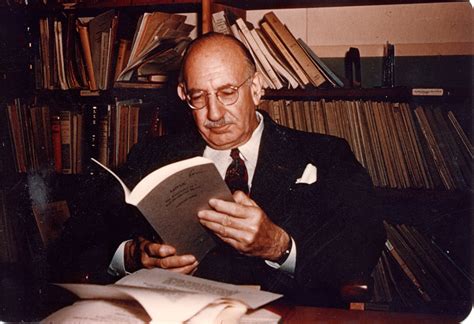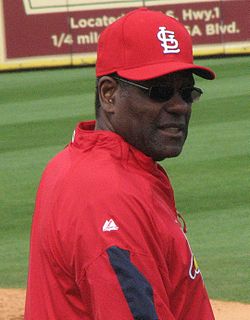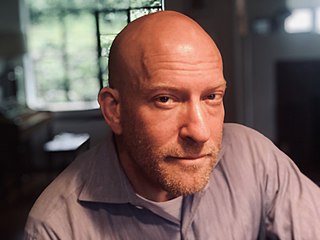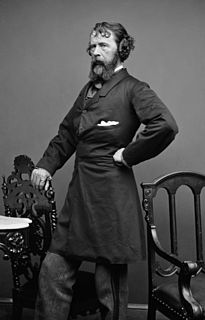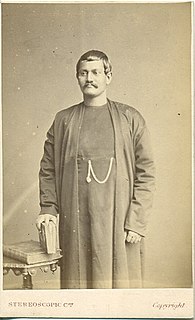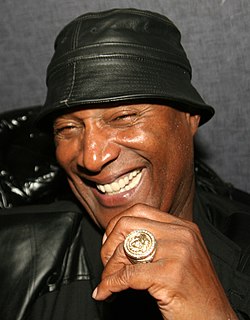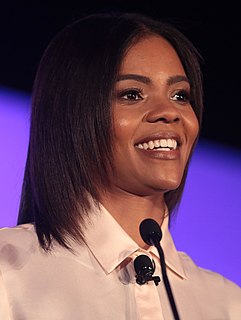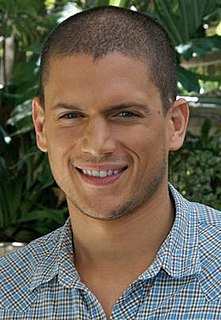Top 1200 Racial Prejudice Quotes & Sayings - Page 3
Explore popular Racial Prejudice quotes.
Last updated on April 16, 2025.
Since biological change occurs slowly and cultural changes occur in every generation, it is futile to try to explain the fleeting phenomena of culture by a racial constant. We can often explain them-in terms of contact with other peoples, of individual genius, of geography-but not by racial differences.
I believe inter -racial marriages show the world that the color of a person's skin is of no consequence. The more such marriages there are, the more people will come into direct contact with such couples. This benefits peace in the world where so much conflict and hatred is based on racial and religious differences
Marie Curie is my hero. Few people have accomplished something so rare - changing science. And as hard as that is, she had to do it against the tide of the culture at the time - the prejudice against her as a foreigner, because she was born in Poland and worked in France. And the prejudice against her as a woman.
There's a certain level of vehemence, it seems to me, that's directed at me [and] directed at the president. You know, people talking about taking their country back. There's a certain racial component to this for some people. I don't think this is the thing that is a main driver, but for some there's a racial animus.
One thing has not changed: to doubt the worth of minority students' achievement when they succeed is really only to present another face of the prejudice that would deny them a chance to even try. It is the same prejudice that insists all those destined for success must be cast from the same mold as those who have succeeded before them, a view that experience has already proven a fallacy.
Hardly any aspect of my life, from where I had lived to my education to my employment history to my friendships, had been free from the taint of racial inequity, from racism, from whiteness. My racial identity had shaped me from the womb forward. I had not been in control of my own narrative. It wasn’t just race that was a social construct. So was I.
The prejudice of unfounded belief often degenerates into the prejudice of custom, and becomes at last rank hypocrisy. When men, from custom or fashion or any worldly motive, profess or pretend to believe what they do not believe, nor can give any reason for believing, they unship the helm of their morality, and being no longer honest to their own minds they feel no moral difficulty in being unjust to others.
There is hardly any other sphere in which prejudice and superstition of the most horrific kind have been retained so long as in that of women, and just as it must have been an inexpressable relief for humanity when it shook off the burden of religious prejudice and superstition, I think it will be truly glorious when women become real people and have the whole world open before them.
Housing in New York seemed to fit Norman Lear. In addition, his shows confronted all kinds of social issues - racial separation and prejudice being foremost among them. The Evans of Good Times were the first black family to be the focus of a primetime American TV show. A lot of the people we came across in filming were familiar with the role Norman played in catalyzing important national conversations about race. They seemed grateful to him for trying to move the needle.
Mayor De Blasio's appointment of Bill Bratton as police commissioner is the height of hypocrisy. Asking Bratton to stop racial profiling and stop and frisk is like asking an arsonist to help you put out fires. Bratton along with his partner Giuliani started and supported racial profiling stops. A new progressive mayor? I think not!
The education that you give to the upper classes will not uproot idolatry and prejudice, for it is amongst the masses that the error and prejudice will always maintain their power, and while you do not uproot those prejudices from the hearts of the masses, a handful of educated Hindus will never be able successfully to reform the country.
I contend that the continued racial classification of Homo sapiens represents an outmoded approach to the general problem of differentiation within a species. In other words, I reject a racial classification of humans for the same reasons that I prefer not to divide into subspecies the prodigiously variable West Indian land snails that form the subject of my own research.
It is unfortunate that we should find ourselves at this time the only disorganized group. Others have had the advantage of organization for centuries, so what seems to them unnecessary, from a racial point of view, becomes necessary to us, who have had to labor all along under the disadvantage of being scattered without a racial aim or purpose.
Now is the time to make real the promises of democracy. Now is the time to rise from the dark and desolate valley of segregation to the sunlit path of racial justice. Now is the time to lift our nation from the quicksands of racial injustice to the solid rock of brotherhood. Now is the time to make justice a reality for all of God’s children.
I certainly think so, and I argue so, and I give talks on that. Are there risks by putting people together? Absolutely. Is there value in the black church? Absolutely. Is there value in having immigrant churches? Absolutely. But if we don't have congregations gathering with people of different races, what we're doing is we are redefining racial division, a racial inequality.
[Alex] Haley felt he could make a solid case in favor of racial integration by showing what was - to white America - what was the consequence of their support for racial separatism that would end up producing a kind of hate, the hate that hate produced, to use the phrase that Mike Wallace used in his 1959 documentary on the Nation of Islam.
If we want to do more than just end mass incarceration—if we want to put an end to the history of racial caste in America—we must lay down our racial bribes, join hands with people of all colors who are not content to wait for change to trickle down, and say to those who would stand in our way: Accept all of us or none.
All politicians are going to mask to some degree in order to present themselves in away they think will get them votes. What's different in Obama's case is that he's wearing a racial mask, this 'bargainer's' mask, and I think very effectively, whereby he gives whites the benefit of the doubt. He's essentially saying, 'I am going to presume you are not racist, if you won't hold my race against me.' So, his mask is a distinctly racial one.
I don't think Dr. King helped racial harmony, I think he helped racial justice. What I profess to do is help the oppressed and if I cause a load of discomfort in the white community and the black community, that in my opinion means I'm being effective, because I'm not trying to make them comfortable. The job of an activist is to make people tense and cause social change.
Our goal is to have a country that's not divided by race. And my impression, as I travel around the country, is that that's the kind of country that most people want, as well, and that we all have prejudice, we all have certain suspicions or stereotypes about people who are different from us, whether it's religious or racial or ethnic, but what I think I found in the American people, I think there's a core decency there, where if they take the time, if they get the time to know individuals, then they want to judge those individuals by their character.
Prejudice ... is a subjective emotion which expresses itself upon others only because of an inner necessity for release. The object is irrelevant and opportune. The person who feels prejudice is the victim of himself and his own unhappiness and dissatisfaction. Life is not what he wants it to be and it has not been what he wishes it had been.
Just as there is no such thing as a collective or racial mind, so there is no such thing as a collective or racial achievement. There are only individual minds and individual achievements-an d a culture is not the anonymous product of undifferentiate d masses, but the sum of the intellectual achievements of individual men.
Remus Lupin was supposed to be on the H.I.V. metaphor. It was someone who had been infected young, who suffered stigma, who had a fear of infecting others, who was terrified he would pass on his condition to his son. And it was a way of examining prejudice, unwarranted prejudice towards a group of people. And also, examining why people might become embittered when they're treated that unfairly.
We are not post-racial. And in many ways we don't even know how to have a conversation about being post-racial. Until we get out of that old-school way of thinking about race and opportunity and the ability to transcend some of the past of this country, then we're going to be stuck in the 20th-century conversation about race.
To me, racial barriers do not exist in reality. If I say that 'everyone under the sun is a member of a universal family,' you may think that I am bluffing and being idealistic. But if anyone still believes in racial differences, I think he is too backward and narrow in his perspective. Perhaps he still does not understand man's equality and love.
I liked the idea of giving Eligible a feminist flavor. While I do think that in Pride and Prejudice, Liz Bennet is very bold, she is also very restricted in terms of what's appropriate for her to do and the ways it's appropriate for her to behave. One of the differences between Pride and Prejudice and Eligible is that my female characters take more initiative in their romantic lives.
I went to Catholic school my entire life. Elementary school was probably my worst time - those are the years when you're figurin' out who you are, and then you've got the added pressure of being on the light-skinned side of things. I've been around - excuse me saying - predominantly white people in Catholic school, who sit around and just talk about black people because they thought they were in the presence of themselves, and they used to talk cool. I felt firsthand the racial prejudice that is still alive today.
The beautiful thing about having grown up in Brooklyn is, because of the rich cultural and racial diversity there, no one seemed to give too much thought to where I fit on the racial spectrum. But there were times when I would run up against someone who was interested in figuring out what race was. That would come as a surprise, and in some cases, like a slap in the face.


